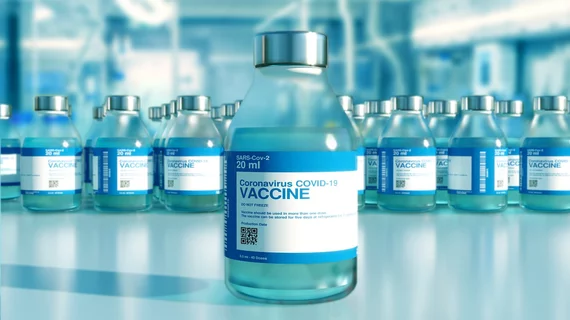Study confirms COVID-19 vaccines are effective
A new study has confirmed vaccines from Pfizer-BioNTech and Moderna are effective at preventing symptomatic COVID-19 cases. The new research, published by the Centers for Disease Control and Prevention (CDC), confirmed the approved mRNA vaccines are highly effective.
The study examined a cohort of nearly 4,000 healthcare personnel, first responders and other frontline workers over 13 weeks, finding the mRNA vaccines were 90% effective after more than 14 days second dose against Sars-Cov-2 infections regardless of symptom status and 80% effective following 14 days or more after the first dose. None of those enrolled in the CDC study had been previously infected with COVID-19.
Nearly 63% of enrollees received two vaccine doses over the course of the study, while 12% received just one dose.
The confirmation of effectiveness may help quell unfounded fears of vaccine dangers or ineffectiveness. Other recent studies reveal a significant portion of the healthcare workforce are skeptical of the vaccines, believing they were rushed and lack safety and effectiveness studies. However, multiple other studies have proven the effectiveness of the vaccines currently available.
“These interim vaccine effectiveness findings for both Pfizer-BioNTech’s and Moderna’s mRNA vaccines in real-world conditions complement and expand upon the vaccine effectiveness estimates from other recent studies and demonstrate that current vaccination efforts are resulting in substantial preventive benefits among working-age adults,” wrote first author Mark G. Thompson, PhD, an epidemiologist with the CDC, et al.
According to the researchers, vaccination is critically important for healthcare workers due to the virus’ ability to spread before people reveal symptoms. Further, asymptomatic spread has been confirmed. They also pointed out the benefits of partial vaccination for workers who interact with patients.

